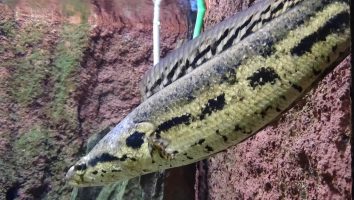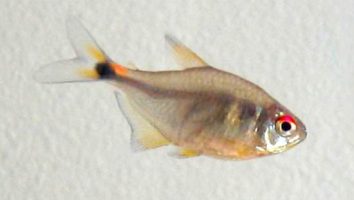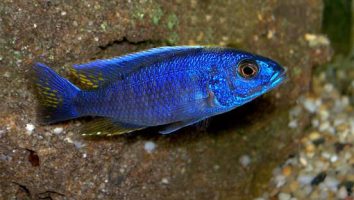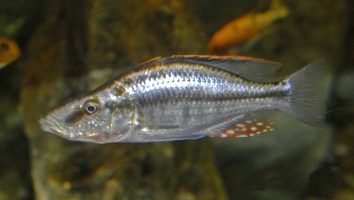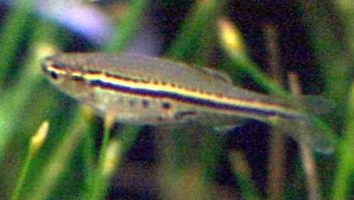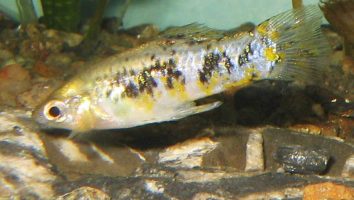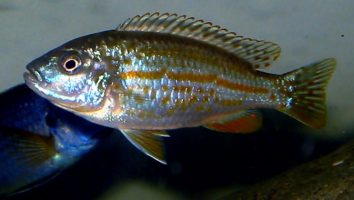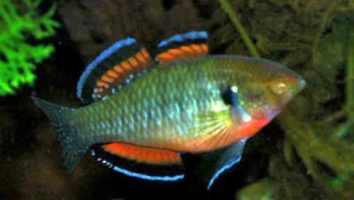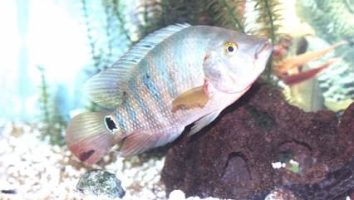The Clown rasbora (Trigonostigma heteromorpha) is a beautiful freshwater fish that’s perfect for beginners. They’re easy to care for, peaceful, and can live in a wide range of water conditions.
This little fish is also known as the Harlequin rasbora, and for good reason. Their bright red and black coloration is very eye-catching, and they’re one of the most popular fish in the aquarium trade.
If you’re thinking about adding some Clown rasboras to your tank, this guide will teach you everything you need to know. We’ll go over their diet, tank mates, lifespan, and more!
Table of contents
Species overview
Clown rasboras (Trigonostigma heteromorpha) are a small fish that are found throughout Southeast Asia in countries like Thailand, Malaysia, and Indonesia.
They prefer habitats with dense vegetation and plenty of hiding spots. This could be something like a heavily planted tank or even a blackwater aquarium with a lot of driftwood and leaves.
Clown rasboras are a peaceful fish that do well in community tanks. They can be kept with a wide variety of other fish, although it’s best to avoid anything that is too aggressive.
These fish are very popular in the aquarium trade due to their bright coloration and peaceful nature. They’re a great addition to any freshwater tank!
Appearance
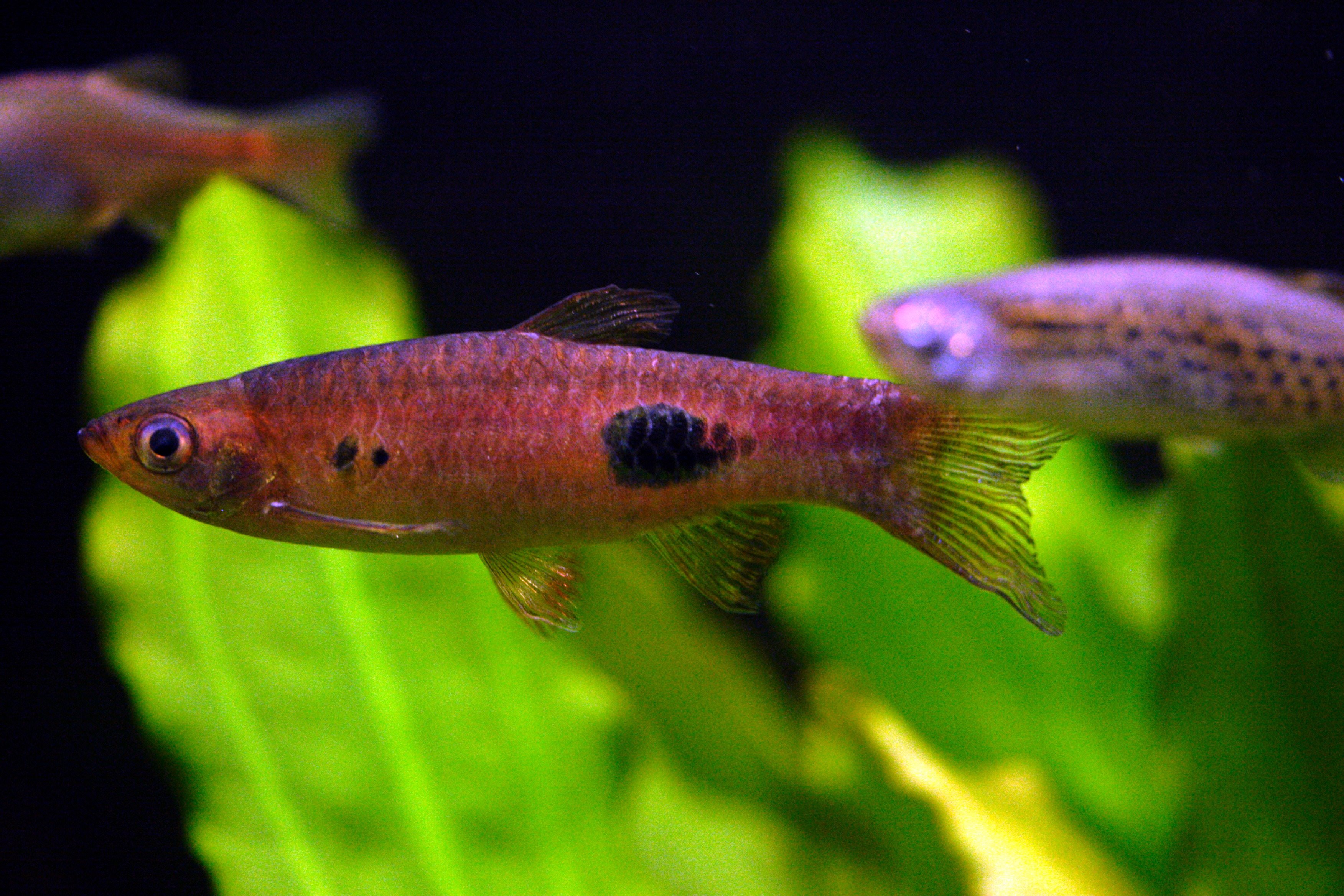
clown rasbora is one of the most popular freshwater aquarium fish for a reason: their striking appearance. The body of clown rasbora is fairly elongated and compressed laterally.
The back half of their body is a deep, rich red color. The front half is a bright, vibrant orange. There is also a thin line of black that goes from the clown rasbora’s mouth, through their eye, and to the base of their tail.
This coloration is what gives clown rasbora their name, as they look like little clown fish swimming around in your aquarium!
Clown rasbora also have two dorsal fins. The first dorsal fin is shorter and has a rounded shape. The second dorsal fin is much longer and has a more pointed shape.
Clown rasbora also have a forked tail fin that is used for propulsion.
Lifespan
The Clown rasbora has a lifespan of 3-5 years. However, their lifespan in captivity is often shorter due to the sub-optimal conditions in which they are often kept.
Size
Clown rasboras only grow to be about 2 inches in length, making them one of the smaller freshwater fish species. Despite their small size, they still need a bit of space to swim and explore. A 10 gallon tank is the minimum size you should get for a small group of clown rasboras.
Tank
Tank Size
The recommended tank size for clown rasboras is at least 10 gallons. If you’re looking to keep a school of fish, then you should increase that number to 20 gallons for a group of 5 or 6 fish.
Clown rasboras are peaceful fish that do best in groups, so we recommend keeping them in schools of 5-6 fish or more.
Water Parameters
As with all fish, it’s important to match the water parameters of your clown rasbora as closely as possible to their natural habitat.
Clown rasboras are found in slow-moving streams and rivers in Southeast Asia. The water is typically warm, slightly acidic, and has a high concentration of dissolved oxygen.
While you don’t have to match all of these parameters precisely, it’s important to stay within the ranges below to ensure a healthy environment for your clown rasbora.
- Water temperature: 75 to 82 degrees Fahrenheit
- pH levels: 6.0 to 7.5
- Water hardness: 2 to 12 dGH
- Alkalinity Levels: 4-8 dKH
What To Put In Their Tank
Clown rasboras are a schooling fish, so it’s important that you provide them with plenty of space to swim. They’re not overly active, but they do like to move around a bit.
The inside of their tank should have some plants and driftwood for them to hide in and around. These fish don’t like a lot of light, so you might want to consider floating plants to help diffuse it a bit.
The substrate can be whatever you want. They’re not picky eaters, so gravel or sand will work just fine.
Common Diseases
Clown rasboras are a fairly hardy species of fish. They don’t seem to be too susceptible to the common freshwater diseases that plague other fish.
However, that doesn’t mean they can’t get sick. Any fish can get sick if the water quality in their tank is poor.
The most common disease that these fish get is ich. This is a parasite that will attach itself to your fish and slowly begin to kill them. The most obvious sign of ich is the presence of white spots on the body of your fish.
If you see these spots, it’s important to take action immediately. Ich is a very serious disease and if it’s not dealt with quickly it can kill your fish.
There are other diseases that can affect clown rasboras, but they’re not as common. Some of these include bacterial infections, fungus, and parasites.
As with any fish, the best way to prevent these diseases is to maintain the quality of the water in their tank. A clean and stable habitat will always lead to healthier fish.
Behavior & Temperament
Clown rasboras are one of the best community fish you can find. They’re peaceful, gentle, and get along with nearly every other fish species.
These little fish spend most of their time in schools near the middle and top of the water column. They’re constantly on the move, but they never swim too fast. Their movements are graceful and mesmerizing.
Clown rasboras are also known to be very curious. They’re always exploring their surroundings and checking out anything new in the tank. This includes other fish, plants, and even you!
Although they’re not the most active fish, they do have bursts of energy from time to time. When they get going, they swim around quickly and playfully. It’s a fun sight to see.
Tank Mates
Clown rasboras are peaceful fish that do well in community tanks. They’re not too big and not too small, which gives you a lot of options when it comes to finding the right tank mates.
These fish are also relatively easy to care for, which is another bonus. Clown rasboras are a good option for beginner aquarists who are just getting started in the hobby.
When it comes to finding clown rasbora tank mates, the key is to find other peaceful fish that occupy different parts of the water column.
Clown rasboras are schooling fish, so they like to stay in groups. You should aim for a group of at least six fish. This will help reduce stress levels and make them feel more comfortable in their new environment.
Some good clown rasbora tank mates include:
- Neon Tetras
- Harlequin Rasboras
- Ember Tetras
- Guppies
- Platies
- Mollies
Breeding
Clown rasboras are livebearers, meaning that they give birth to live young. This is good news for breeders because it takes out a lot of the guesswork.
To start, you’ll need a breeding tank that’s at least 10 gallons. The water should be soft and acidic, with a temperature between 72 and 82 degrees Fahrenheit. You can use a sponge filter to avoid harming the fry.
As for plants, use floating species like java moss or water sprite. These will give the fry a place to hide and feel safe.
Now it’s time to add the fish! Start with two females for every male. The female clown rasboras will be noticeably plumper than the males.
Feed them a diet of live foods and high-quality flakes. After a week or so, you should see the females start to swell with eggs.
When this happens, the males will become more aggressive. They’ll chase the females around and nip at their fins. This is normal behavior.
Eventually, the female will drop her fry. They’ll be fully-formed and ready to swim. The fry will hide among the plants and feast on algae, small insects, and other microscopic organisms.
You can supplement their diet with live foods or specially-formulated fry food. Just make sure to keep an eye on the water quality. Regular water changes are a must.
Conclusion
Clown rasbora care is pretty easy and straightforward. These fish are very hardy, so they can tolerate a wide range of water conditions.
They’re also peaceful fish that do well in community tanks. As long as you provide them with a good diet and adequate hiding places, they’ll be happy and thrive in your care.
Overall, we think clown rasboras are a great choice for beginner aquarists or anyone who wants an easy-to-care-for fish.

